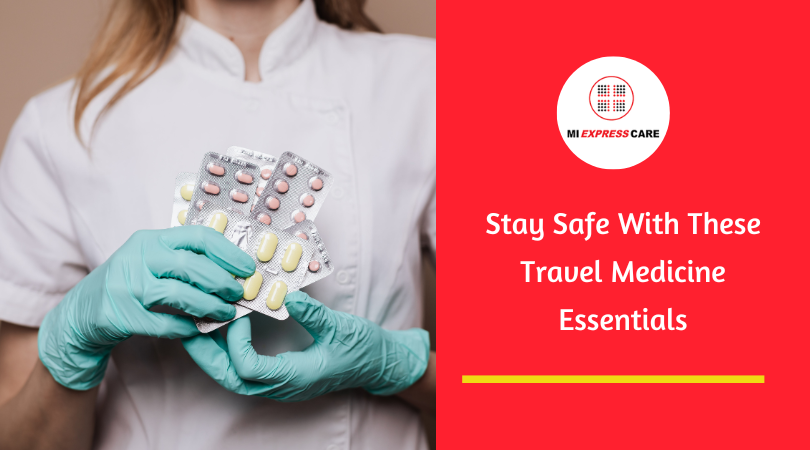


Traveling can be an exciting journey, but it may also bring certain health risks, particularly when visiting new or unfamiliar places. Preparing properly is essential to protect your health and safety while you travel. Travel medicine is vital for ensuring your well-being, whether on vacation, a business trip, or an adventure to a remote area.
In this blog, we'll discuss the essential travel medicine items to pack, how to prevent travel sickness, and when to consult a travel health expert.
Travel medicine is a specialized area of healthcare that concentrates on preventing and managing health risks during travel. It involves advice, vaccinations, and medications to protect travelers from illness or injury abroad. Travelers to unfamiliar and high-risk areas, such as tropical regions, rural locations, or places with limited healthcare infrastructure, benefit significantly from travel medicine.
As a vacationer, business traveler, or adventurer, a well-packed travel medicine kit and the right knowledge can help keep you healthy and safe.
A little preparation goes a long way when it comes to travel health. Here's travel health tips you need to know to stay healthy on the go:
Bandages, antiseptic wipes, gauze, and adhesive tape are must-haves for minor injuries.
Include pain relievers for headaches and muscle aches.
Motion sickness medication can prevent nausea and vomiting during travel.
Anti-diarrheal medications and rehydration solutions are crucial for treating upset stomachs.
Antihistamines can alleviate allergy symptoms such as itching and sneezing.
Ensure you have an adequate supply of all your medications, including those for chronic conditions like heart disease or diabetes.
Carry a copy of your prescriptions and a doctor's note if necessary.
To prevent insect-borne diseases like malaria, mosquito repellents are essential, especially in tropical regions.
Sunscreen with a high SPF protects your skin from harmful UV rays.
Certain regions require specific vaccinations for travel. Some of the most common include:
Hepatitis A and Typhoid: Recommended for travelers to areas with contaminated food or water sources.
Yellow Fever: A requirement for travel to certain parts of Africa and South America.
Malaria prevention: This is crucial for those traveling to malaria-endemic regions. Consult your doctor for the best preventive treatments.
Before heading off, it's important to research the health risks associated with your travel destination. Many destinations may have specific health advisories, such as outbreaks of diseases or the need for special vaccines.
Check for any travel advisories issued by health authorities or the government. Websites like the Centers for Disease Control and Prevention (CDC) offer detailed guidance on health risks for specific destinations. This information will help you understand the precautions necessary for your trip.
Emergencies can happen, and travel insurance covering medical emergencies, including medical evacuation is essential. Medical evacuation ensures that, if necessary, you can be transported to the nearest hospital or flown back home for treatment in case of a serious illness or injury.
Knowing the healthcare options available in your destination is crucial, especially if you're traveling to a remote area. Research local hospitals and clinics, and ensure you can access medical assistance if needed. Private hospitals offer higher-quality care in some countries, so it's worth knowing your options.
It's highly recommended to consult with a travel health professional before any international trip. These specialists can:
Provide personalized travel health advice.
Recommend necessary vaccinations and medications.
Advise on how to prevent and treat common travel-related illnesses.
Address any specific health concerns you may have.
Traveling is thrilling, but staying healthy ensures you can fully enjoy the experience. Pack smart, prepare for risks, and consult a travel health professional for personalized advice. With a little preparation, you can explore confidently, set yourself up for a stress-free and enjoyable trip, and focus on creating unforgettable memories.
Planning your next adventure? MI Express Urgent Care is here to ensure your travel health is covered. With same-day appointments, extended hours, and expert guidance, we provide the vaccinations, travel health advice, and personalized care you need to stay safe on your trip. Don't let health problems disrupt your journey.
Book an appointment and travel safely!